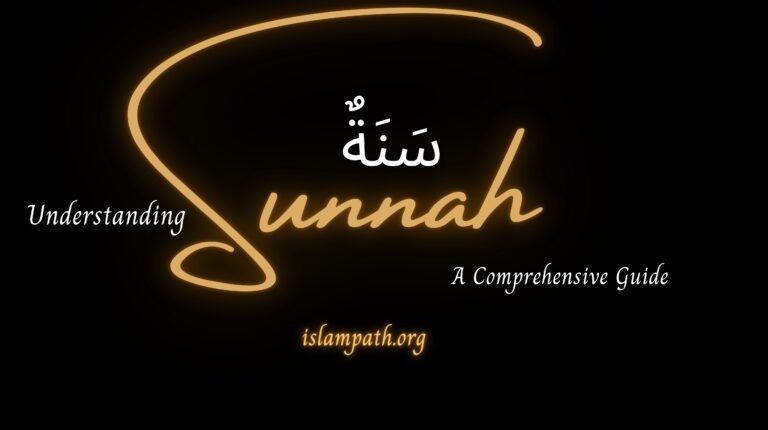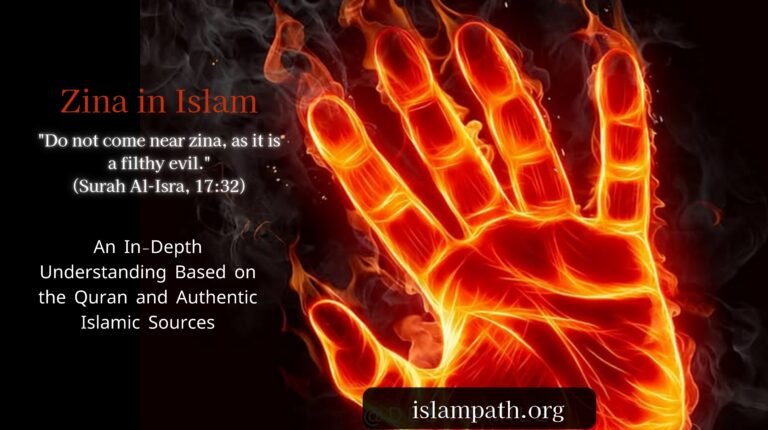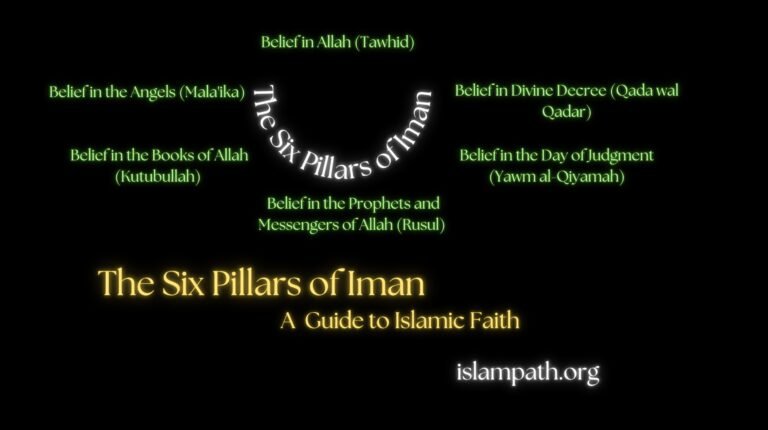Barzakh : The Intermediate Realm in Islamic Belief
Barzakh is a concept in Islamic theology that is deep and less understood, referring to the intermediate realm where souls dwell after death and before the Day of Resurrection. Derived from the Arabic root “barzakh,” meaning barrier or partition, it is a transitional phase between the world of time and the hereafter. The Quran and Hadith literature have some similarities in how they elucidate the nature of Barzakh, from which believers can learn about its importance and its occurrence. This article delves into Barzakh thoroughly using Quranic verses and references from authentic sources in Islam to establish its mystery.
Definition and Etymology of Barzakh
The word “Barzakh” is a Quranic term used in the Quran explicitly and appears in Surah Al-Mu’minun, at 23:100, when Allah says:
“. and behind them is a barrier until the Day they are resurrected.”
Here, the “barrier” refers to a metaphysical separation that divides the living from the dead. Barzakh is not a physical place but a state of being, serving as a transitional phase between worldly life and the eternal dwelling of the Hereafter. It is an immaterial world where the soul undergoes the effects of its earthly actions.
The Nature of Barzakh
The word Barzakh is defined as a realm of awareness where souls are conscious of their deeds and their final fate. According to Islamic scholars, Barzakh has the following characteristics:
Awareness of Deeds: Souls in Barzakh are highly conscious of their past actions. The righteous feel peace and bliss, while the sinful feel remorse and punishment.
Separation of soul and Physical World in Barzakh: So, the soul is taken away from material world; however, yet connected with the spiritual repercussions of her/his activity.
Glimpse of End: Even if finally judgment at the time of Doomsday while the souls feel experiences or encounters during barzakh are considered like a first glimpse of dooms day.
Encounter during the Barzakh
Experiences of people in Barzakh vary with the person’s belief and his deeds during his life time on earth. True Hadiths and Quranic verses detail two major experiences:
For the Righteous
The souls of righteous people, who spent their lives doing good deeds, have ease and divine grace in Barzakh. It is known as the “Life of Ease.” According to Abu Hurairah, the Prophet Muhammad said in a hadith in Sahih Muslim, Book 40:
“When a believer’s soul departs, two angels ascend with it. Allah says, ‘Record My servant’s name in ‘Illiyun (the register of the righteous) and return him to Earth.'”
For the Wicked:
Those who rejected faith or led sinful lives suffer torment in Barzakh. Their souls are referred to as “Life of Punishment.“
According to Surah Al-Anfal (8:50), Allah says:
“If thou couldst see, when the angels take the souls of the Unbelievers (at death), (How) they smite their faces and their backs, (saying): “Taste the penalty of the blazing Fire-“
Stages Within Barzakh
Barzakh is not uniform but includes specific stages:
The Test in the Grave: When a person is buried, two angels named Munkar and Nakir interrogate the person about his faith, his prophet, and his actions. Authentic narrations clearly state that this test determines what the soul will face in Barzakh.
A hadith from Sahih al-Bukhari says:
“When a servant is placed in his grave, two angels come and ask, ‘Who is your Lord? What is your religion? Who is this man who was sent among you?
Reward in the Grave: The grave either is a garden of Paradise for the righteous or a pit of Hellfire for the wicked. This is witnessed in the hadith by Al-Bara ibn Azib (Musnad Ahmad):
“A believer’s grave will be widened and illuminated, while a disbeliever’s grave will be constricted, causing suffering.”
Quranic Verses about Barzakh
Some Quranic verses help explain Barzakh and its experiences and role:
•Surah Al-Mu’minun (23:99-100):
“Until, when death comes to one of them, he says: “O my Lord! send me back (to life),-
“In order that I may work righteousness in the things I neglected.” – “By no means! It is but a word he says.”- Before them is a Partition till the Day they are raised up.”
•Surah Ya-Sin (36:51-52):
“The trumpet shall be sounded, when behold! from the sepulchres (men) will rush forth to their Lord!”
They will say: “Ah! Woe unto us! Who hath raised us up from our beds of repose?”… (A voice will say:) “This is what (Allah) Most Gracious had promised. And true was the word of the messengers!”
These lines point out the fact that Barzakh is actually a state of consciousness with an anticipation awaiting the act of resurrection of souls.
Hadith literature on the subject of Barzakh
The Prophet Muhammad (peace be upon him) described Barzakh with many authentic Hadiths as follows:
Awareness After Death: Uthman ibn Affan narrated that:
“The grave is the first stage of the Hereafter; whoever is saved from it, what follows is easier for him, and whoever is not saved from it, what follows is worse.”
Visitation of Deeds: According to one other hadith, person’s deeds assume forms, that accompany them in their graves. Righteous acts assume the form of source of comfort and evil ones, that of tormentor.
Barzakh: Several lessons to believers are derived from Barzakh:
Accountability: It reminds Muslims that people are answerable, therefore, there should always be righteous living.
Preparation for the Afterlife: Awareness of Barzakh motivates one to strengthen faith, good deeds, and seeking forgiveness from Allah.
Transitoriness of Worldly Life: Understanding of Barzakh emphasizes that the life in this world is transient while that of the Hereafter is eternal.
Authentic Sources to Explain Barzakh
For the understanding of Barzakh, Islamic scholars resort to the following sources:
The Quran: This is the principal source of guidance, as there are direct references about Barzakh.
Hadith Collections: Authentic narrations from Sahih Bukhari, Sahih Muslim, and Musnad Ahmad give very elaborate descriptions of Barzakh.
Classical Islamic Texts: Works like “Kitab al-Ruh” by Ibn Qayyim al-Jawziyya discuss the subject in depth.
(Source: Kitab al-Ruh” by Ibn Qayyim al-Jawziyya)
Conclusion
Barzakh is an important concept in Islamic eschatology that bridges the earthly life with the eternal hereafter. This one finds its roots in Quranic teachings and prophetic traditions. It is a space of consciousness, accountability, and preparation for resurrection. Understanding Barzakh therefore underscores the importance of a righteous life, seeking mercy from Allah, and preparing oneself for this inevitable transition to the afterlife. The teachings on Barzakh, besides offering insight into the afterlife, enrich the journey of the believer as well, reminding him of his ultimate purpose and destiny.



